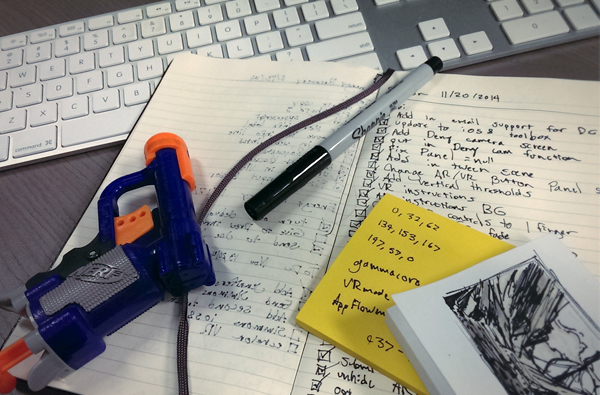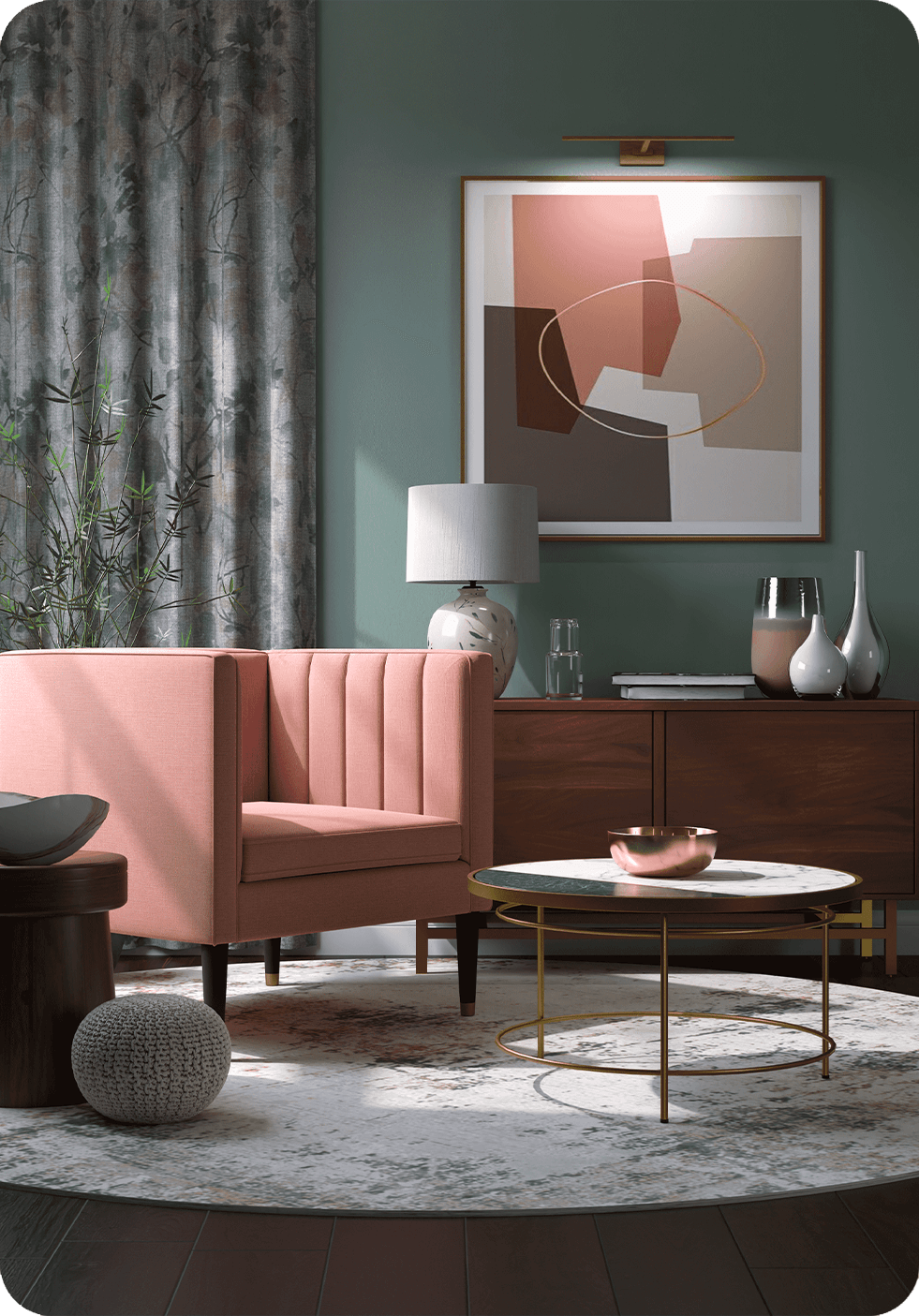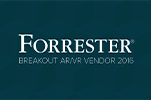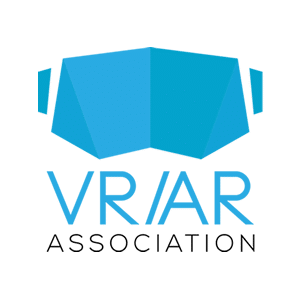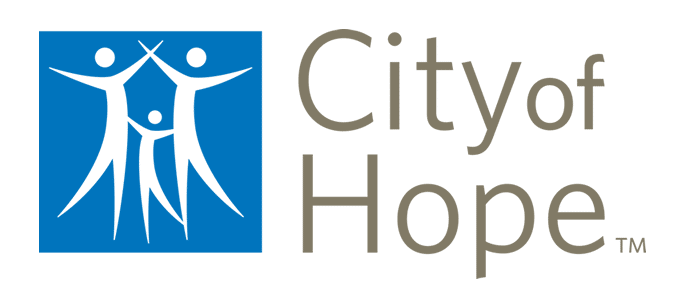As I was working my way through art school, I never pictured myself as any kind of developer much less as an Augmented Reality developer. Over the years I had taken a few programming classes but I had never considered programming or software development a viable career path. Fast forward four months and here I am, independently programming Augmented Reality apps in Unity 3D. I attribute my emerging skills and this fast-track career shift entirely to the collaborative team learning environment that Marxent fosters.
My goal: Code 3D AR experiences from scratch
I decided to approach the Unity Developer position at Marxent with the end goal of translating my existing art skills into fully functioning Augmented Reality experiences coded from scratch. I wanted to become equipped with the tools for total creative expression, something that was previously limited by my lack of programming knowledge. This goal was something that I thought would take many months to achieve. Because of the resources and environment at Marxent, I started coding my own projects from start to finish within the first two months.
How I became a Unity 3D and Augmented Reality developer
A good part of my learning and focus comes from within. Once I see an opportunity in front of me, I reach out and grab it. Though learning new things and starting new projects can be daunting, especially when one is still acquiring the necessary skills, I’ve learned that the best way to start something is just to dive in head first. Here are few habits that I’ve adopted in order to keep acquiring new skills, stay productive and keep to project schedules.
1. Make a plan
Plan out where you think things will go as you work. My first step in the planning stage is usually to make a personal “code map.” Planning out all of the parts and pieces of a project before coding starts saves loads of time when the implementation phase rolls around. I’ve also learned that it’s almost impossible to stick to a plan exactly, and that’s definitely okay. The benefits of making an initial plan are mostly seen in the early stages of production.
2. Write things down
My desk is littered with sticky notes and scraps of paper with little notes to myself. I also like to keep a small notebook with a rolling daily task list. Whenever I don’t finish things on my to-do list, I just roll them over to the next day and continue to check things off as I complete them. This helps me to stay organized and prevents me from feeling overwhelmed.
3. Ask for feedback
Iterative feedback is a fantastic way to make sure that a project is moving in the right direction. I like to get feedback and ask questions of my coworkers as often as possible, especially when I’m treading into new programming territory. At the client level, Marxent project managers are very good about getting regular feedback from clients, which keeps everyone on the same page as we work. I save myself a lot of rework simply by asking questions as I work and regularly confirming that I’m on the right path.
4. Engage the experts
One of the best things about working at Marxent is the seemingly unlimited knowledge of my fellow developers. Whenever I get stuck, I first research the problem on my own for a bit but am never afraid to ask for help. Likelihood is that someone on the team has encountered a similar issue before. It is a relief to know that I have a team of people that are always willing to help if I need it.
Having the chance to learn and work with a great team of talented people working on awesome AR and VR projects has been, and continues to be, an incredible experience. Marxent may not be for everyone, but for me it has been an effective learning environment. Even though projects can be intimidating at times, the rewards and learning opportunities are great.
